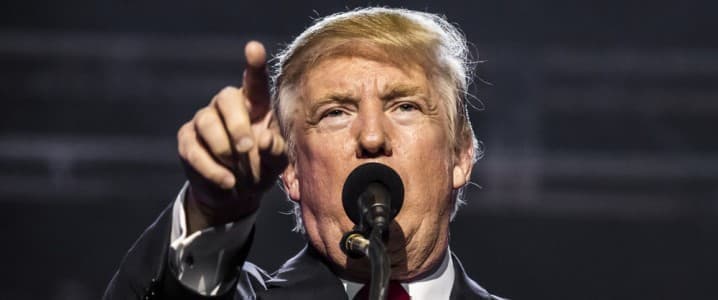U.S. President Donald Trump on Wednesday morning offered to mediate the border dispute between China and India.
We have informed both India and China that the United States is ready, willing and able to mediate or arbitrate their now raging border dispute. Thank you!
— Donald J. Trump (@realDonaldTrump) May 27, 2020
The conflict between the two superpowers came flared during the first week of May when Indian and Chinese soldiers got caught up in a skirmish and threw stones at each other in the Pangong Tso lake and Naku La areas.
The ‘roof of the world’ border dispute goes back many decades and has resulted in various clashes such as the Nathu La and Cho La military duels in 1967, which lasted only a couple of days, to the more recent Doklam military stand-off in 2017 when China began constructing a road in a disputed area.
This time around, Chinese media reports suggest that Indian troops trespassed on Chinese territory, but India's government said its soldiers stayed on its side. While the tensions between the two countries are nothing new, China’s ascent in the region has led to a new string of military incidents. Indian government data reveals that Chinese troops have transgressed into Indian territory 1025 times between 2016 and 2018. The number of transgressions is likely to have increased further in 2019 and 2020 as China increasingly sees India as a powerful rival in the region.

China- India border map – image source: NewsBharati
For a number of reasons, U.S. President Trump’s offer to mediate in this conflict is unlikely to settle the dispute between the two rising nations.
Related: Germany Aims To Become World’s Hydrogen Hotspot
Relations between the U.S. and China have cooled significantly during the Covid-19 pandemic and with Beijing’s recent interventions in Hong Kong. In the meantime, India has cozied up to the U.S., Russia, and Japan with which it’s trying to build strategic partnerships, signing several multi-billion dollar deals in energy, defense, and technology. China, therefore, isn’t likely to accept any type of mediation from the U.S. unless India is willing to make large territorial concessions to Beijing, something it wouldn’t do as it would be seen as a sign of weakness by other neighboring countries.
In the meantime, satellite images suggest that China and India are building up troop strength along the Line of Actual Control (LAC), where China has already deployed 5,000 soldiers and armored vehicles. The Chinese troop buildup has led India to add similar numbers to its existing border protection force.
India has said that it will not allow the current status quo on the LAC to be changed and added that it would respond to any Chinese aggression with ‘’strength and restraint’’.
Related: Putin To Bail Out Russian Oil Industry
The question remains whether this recent spike in tensions will lead to an actual military conflict between the two regional superpowers.
Currently, both China and India are considering their options, and statements from officials suggest that the two nations are looking to continue along the diplomatic route.
ADVERTISEMENT
China’s Foreign Ministry official Zhao Lijian said in a regular briefing to the media on Wednesday that Beijing was committed to safeguarding peace and stability in the border areas. According to Lijian, China is ‘’capable of resolving these related issues properly through dialog and consultation.”
India’s Prime Minister Modi on Thursday also decided to opt for the diplomatic route after having discussed the clashes with National Security Adviser Ajit Doval and Chief of Defense Staff General Bipin Rawat and chiefs of its three armed services.
Neither China nor India responded to U.S. President Trump’s offer to mediate.
By Tom Kool of Oilprice.com
More Top Reads From Oilprice.com:
- Turkey Headed For An Unexpected Victory Libya's Oil War
- $30 Oil Isn’t Good Enough For U.S. Shale
- Is The U.S. Prepared For War With China?


















President Trump's offer of mediation means either he is trying cool down his escalating tension with China or wanting to play the statesman.
Dr Mamdouh G Salameh
International Oil Economist
Visiting Professor of Energy Economics at ESCP Europe Business School, London
Stone pelting like incident most unlikely to result in full fledged military war.
First of all, it is important for China & India to see why Trump wants to fuel the war.